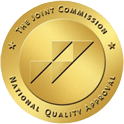It may have been suspected or perhaps broadsided you out of nowhere. Mom has just received the official diagnosis for a progressive disease that is going to make independent life difficult. While there are numerous unknowns, one thing is for sure: she is adamant about remaining at home – meaning you will have some decisions to make about how to provide for the care she’ll need.
Welcome to the world of family caregiving! If you’re feeling a bit stressed with what to expect next in your new role as family caregiver, these recommendations can certainly help.
- Learn as much as you possibly can in regards to the disease. The senior’s doctor can provide you with educational materials and resources to help you know what to expect and to increase confidence in your new role as a family caregiver.
- Prioritize organization. Purchase a binder in which to store important paperwork: test results, prescription details, contact information for doctors\’ offices and also the pharmacy, and any other essential medical information. Start a journal to help monitor any changes in condition or concerns that arise, along with the details surrounding those changes.
- Put aside past hurts. A new diagnosis could cause old family dynamics to resurface. If unresolved issues are interfering with your ability to provide the best care, turn to the support of a professional therapist to work through them.
- Determine boundaries together. Talk with the individual about how much and what type of assistance would be beneficial. It’s natural to want to step in and take over, nevertheless, it’s important for the individual to maintain as much independence and control as possible.
- Take proper care of yourself, too. Your own health and wellbeing are incredibly important. And, the degree of care you provide may be affected if, for example, your own needs are not being met. Prioritize and designate time each and every day for self-care by seeking out and accepting assistance from others.
It is vital to be aware of the possibility for depression and caregiver burnout and to do something immediately should you begin to experience red flags including:
- Increased agitation, anxiety, and irritability
- Retreating from social interactions
- Less interest in once-enjoyed activities
- Resentment
- Lack of appetite
- Difficulties with falling or staying asleep
- Challenges with focus and concentration
- Fatigue
Finding a trusted care partner provides you with time to see the doctor for a checkup to rule out other possible health issues, to talk with a counselor to effectively work through the many emotions involved in caregiving, and also to relax and recharge.
The caregiving team at LightSpring Home Care is here with further resources for family caregivers, as well as skilled, dependable respite care services that enable for a healthy life balance. Contact us online or by phone at (215) 935-6321 for a free of charge in-home consultation to find out more about our in home senior care in Philadelphia and the surrounding areas.




